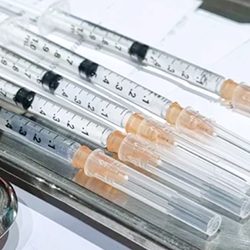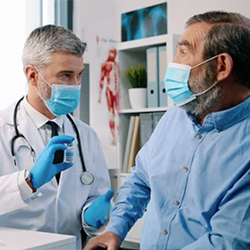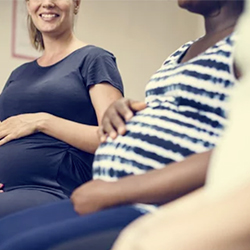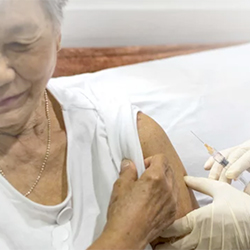By Marie Rosenthal, MS
The CDC’s Advisory Committee on Immunization Practices (ACIP) unanimously recommended that certain moderately to severely immunocompromised individuals receive a third dose of one of the messenger RNA (mRNA) vaccines against COVID-19.

This recommendation aligns with the FDA’s recent decision to expand the emergency use authorization (EUA) for the Pfizer-BioNTech and Moderna vaccines to allow a third dose as part of the primary series. People who would fall into this new group are those with active or recent treatment for solid tumor and hematologic malignancies; those who have received a solid-organ or recent hematopoietic stem cell transplant; have a severe primary immunodeficiency disorder, advanced or untreated HIV; or have chronic medical conditions, such as asplenia or chronic kidney disease. Another group that would be eligible for the third dose are those taking high-dose corticosteroids, alkylating agents, antimetabolites, tumor necrosis factor blockers, and other biologic agents that suppress or modulate the immune system.
Neela Goswami, MD, MPH, a medical officer at the CDC, said it was important for the panel to understand that this was not a booster dose, but an addition to the primary vaccination schedule. “Administration of this additional dose is given when the initial immune response following a primary series is likely to be insufficient,” Dr. Goswami explained. A booster dose is an additional dose “administered when the initial sufficient immune response to a primary vaccine series is likely to have waned over time.”
At this time, she added, the need for and timing of a COVID-19 booster dose have not been established.
Why a Third Dose?
This new recommendation will affect about 2.7% of the U.S. population or about 7 million people.
People who are moderately or severely immunocompromised are especially vulnerable to COVID-19 infection and tend to mount a lower immune response to the first two doses of vaccination, according to presentations made at the ACIP meeting.
With the recent rapid rise in cases, hospitalizations and deaths due to the delta variant, the FDA and the panel wanted to afford these patients as much protection as possible. Since July 1, there has been a 700% increase in the seven-day average for COVID-19 cases in the United States, according to Matthew F. Daley, MD, the ACIP working group chair and a senior clinical investigator at the Institute for Health Research at Kaiser Permanente Colorado, in Aurora.
Although most cases during this most recent surge are occurring primarily in unvaccinated individuals, some people are seeing breakthrough infections. Breakthrough infections among immunocompetent people tend to be mild or asymptomatic, but up to 44% of those with an immune-compromising condition are hospitalized after experiencing a breakthrough infection, according to Kathleen Dooling, MD, MPH, a medical officer at the CDC.
Even if not hospitalized, they are more likely to become seriously ill and shed virus longer than immunocompetent people.
The reason? They have lower antibody and neutralization titers to SARS-CoV-2 than immunocompetent people, Dr. Dooling explained. The vaccine effectiveness for immunocompromised people is about 59% to 72%, while for people with healthy immune systems, the vaccines have an effectiveness of about 90% to 94%.
Although a third dose in immunocompromised people does not equal the protection of the vaccines that people with healthier immune systems see, among those who had no detectable antibody response to an initial mRNA vaccine series, 33% to 50% developed an antibody response to an additional dose, according to Dr. Dooling.
Several organizations support the decision, she added, including the Infectious Diseases Society of America, Pediatric Infectious Diseases Society, American College of Rheumatology, several transplant societies and the Children’s Oncology Group.
The IDSA released a statement after the decision supporting both agencies. “This authorization will provide more protection for those who are at risk of serious COVID-19 illness and disease.
“While data on the use of a third dose of COVID-19 vaccine in immunocompromised patients is limited, there is sufficient data supporting its use for specific patient populations. IDSA calls for more research to continually inform optimal vaccination strategies for all immunocompromised patients,” said Daniel P. McQuillen, MD, FIDSA, the president-elect of IDSA. “As COVID-19 case counts, hospital utilization rates and deaths once again increase due to the highly contagious delta variant, infectious diseases experts urge everyone who is eligible to get vaccinated. Vaccines remain the best tool in the fight against COVID-19. Increasing the percentage of the population that has received at least one dose is also a critical strategy to protect those who are immunocompromised and children under the age of 12. Improving global vaccine equity and access is also critically important to end the COVID-19 pandemic.”
The panel said it was important that the recommendations make clear that immunocompromised people still need to practice mitigation strategies because even after a third dose, their immune response is less than in other people. These include wearing a mask, social distancing and avoiding crowds, especially in poorly ventilated indoor spaces.
The ACIP and FDA also recommend that close contacts of immunocompromised people be strongly encouraged by health care providers to be vaccinated to increase the protection for the patient.
The ACIP said the additional dose should be the same as the primary series of mRNA vaccine, if possible, but if that cannot be done, then individuals can receive a heterologous additional dose.
Because the data are insufficient, the EUA and the ACIP recommendations do not apply to the Janssen COVID-19 vaccine or to individuals who received the Janssen vaccine. However, studies are being done to evaluate this, according to Dr. Dooling.
Other countries, including France, Israel, United Kingdom and Germany, have made similar recommendations. However, the World Health Organization asked that recommendations for a third dose wait until more people in developing countries have received their primary series.




